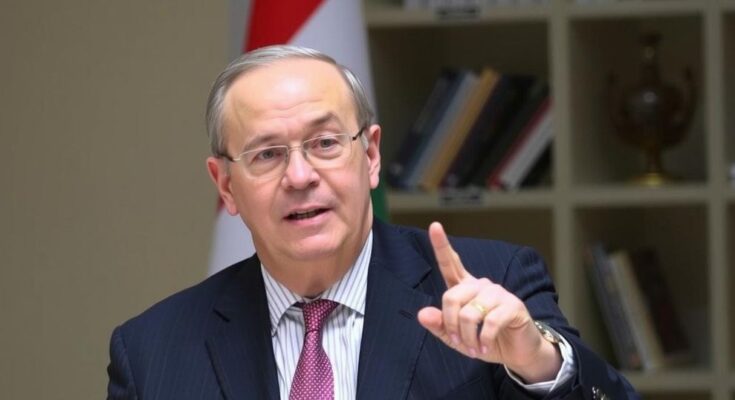Joseph Aoun has been elected as President of Lebanon, ending a two-year presidential vacancy. His election occurs amidst ongoing economic crises, stalled reforms, and regional geopolitical tensions. While international support may be forthcoming, substantial challenges lie ahead for the new administration to restore stability and governance in Lebanon.
On January 9, Joseph Aoun was elected as the new President of Lebanon, concluding over two years of presidential vacancy. His election, secured with 99 votes in the Lebanese parliament, is a pivotal moment in Lebanese politics, as the previous president’s term expired in October 2022 without a successor. This prolonged lack of leadership has not only paralyzed governance but has also hindered the appointment of crucial positions, including that of the Prime Minister.
The newly elected President Aoun faces considerable challenges that accompany Lebanon’s ongoing economic and financial crisis, worsening since the collapse of the financial system in 2019. The ramifications of external shocks, including the COVID-19 pandemic and the effects of the Ukraine conflict, have further exacerbated the situation. Despite these adversities, the election of President Aoun signals a potential return to stability, especially with indications of support from international partners like Saudi Arabia that may assist Lebanon.
Additionally, Lebanon’s geopolitical landscape poses a significant hurdle, particularly concerning relations with Israel and the presence of Hezbollah. Recent conflicts have inflicted considerable damage to infrastructure and resulted in numerous casualties and displacements. The World Bank estimates economic losses from conflict at approximately USD 8.5 billion. It is critical for President Aoun to maintain the fragile ceasefire between Hezbollah and Israel, which is tenuous yet currently holding despite emerging tensions.
Although President Aoun’s election is a positive development for Lebanon, opportunities for recovery are tempered by profound political, economic, and institutional challenges. Hence, Credendo continues to classify Lebanon’s political risk in the highest category, emphasizing the need for urgent and sustained reform initiatives across various sectors.
Lebanon has been grappling with profound political instability following the expiration of President Michel Aoun’s term in October 2022. The political landscape has been marked by a fragmented parliament that has struggled to reach consensus, resulting in a two-year void of presidential leadership. This vacuum has stymied critical government functions and hindered necessary reforms that would provide much-needed financial support from international organizations, such as the International Monetary Fund. The nation is also beset by economic woes exacerbated by external shocks, including the COVID-19 pandemic and regional conflicts, significantly complicating recovery efforts.
In conclusion, Joseph Aoun’s election as President of Lebanon represents a vital step towards restoring governance after a lengthy period of paralysis. However, significant challenges remain, including economic crises, institutional reform needs, and geopolitical tensions. The support from international partners like Saudi Arabia may offer a glimmer of hope, but the complexities of Lebanon’s socio-political landscape necessitate cautious optimism as the new administration endeavors to navigate these formidable obstacles.
Original Source: credendo.com




